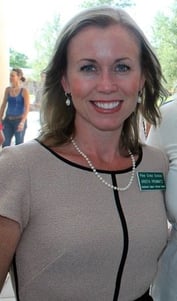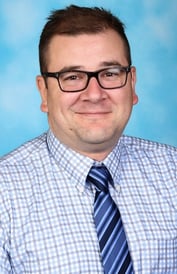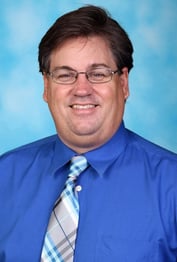Before setting up classrooms and welcoming students for the first day of school in August, Pine Crest School faculty participated in the Teachers Teaching Teachers professional development day. Now in its ninth year, teachers participate in a variety of peer-led learning sessions where they connected with colleagues, exchanged expertise, and engaged in dialogue about best practices.
Register today for Pine Crest School's Virtual Career Fair
Teachers Teaching Teachers is just one example of Pine Crest’s robust professional development program, which offers abundant opportunities for teachers to pursue master’s and doctoral degrees, travel to off-site conferences, learn from visiting subject matter experts on campus, and more. Once school was dismissed in June, more than 60 faculty members dedicated themselves to professional development coursework, including:
- Intensive literacy instruction at Columbia University
- Emotional intelligence exploration at the Institute for Social and Emotional Learning
- Robotics training at Carnegie Mellon University
- Coding instruction at Massachusetts Institute of Technology
- College Board conference focused on Advanced Placement (AP) coursework
- Design thinking at Stanford University

Assistant Head of Upper School and Dean of Student Services Krista Promnit ’97 attended the Institute for Social and Emotional Learning in Bethesda, Md.
Krista co-chairs Pine Crest’s Social and Emotional Education Initiative. “The material and instruction at the Institute was thought-provoking, fresh, and applicable while remaining anchored
in research and best practices,” said Krista. “Every activity had a purpose and helped me better understand the concept of social emotional learning as an everyday instructional strategy. It was especially exciting to connect with colleagues who work in secondary schools, as it is challenging to find instructional strategies for Upper School students. I returned to Pine Crest full of ideas and enthusiasm to implement programming that will help our students connect with their emotionality and thoughts.”

Computer Science and Technology Specialist Pedro Uribe participated in a three-day design thinking immersive at the Stanford University d.School.
During Discover Design Thinking for Educators, Pedro and other elementary and secondary school teachers collaborated on creating a solution to a real-world problem.
“Design thinking involves bringing together multidisciplinary experts to create a solution to a problem, focusing on understanding the needs of others, and figuring how to meet their needs,” said Pedro. “Following this process helps develop a sense of empathy in students. They learn that designing is not about them, the designers; it is about the person or people for whom they are designing.”
At the end of the three-day course, participants taught a lesson to a group of K-12 students and left Stanford with a plan for how to implement design thinking processes and mindsets in their home schools.
“As an instructor, one of my takeaways from the lesson was to plan for every possible scenario while being open and responsive to whatever is happening in the moment with students in the classroom,” said Pedro. “This is leading by example. Our role as teachers is to help students embrace the unknown and feel comfortable with not having the ‘right’ answer or complete solution. In class, brainstorming is not just about putting ideas on paper; it is about complementing and building upon others’ ideas. No idea is too crazy or far out, every step has a purpose, and anything is possible.”

Innovation Specialist Kris Swanson and Lower School Computer Science Technology Specialist Alexis Cobo attended the MIT Scratch Conference in July.
Scratch is a programming language developed and maintained by the MIT Lifelong Kindergarten group and Media Lab and used by Pine Crest Lower School students to create and share interactive stories, games, and animations. Programming in Scratch teaches students to think creatively, reason systematically, and work collaboratively. Scratch serves as an introduction to more powerful languages such as Python, Java, and C++, which are used in Middle and Upper School.
“I was able to learn about the new version of Scratch first hand from its creators and programmers at MIT,” said Kris. “We will be using Scratch 3.0 with PC students as a tool to create computer programs, as well as to program a new generation of student-friendly robots and microcontrollers. Attending conferences like this one helps keep us at the forefront of computer science education so that we can deliver the best possible instruction and experiences to our students.”
As outlined in 2014-19 Strategic Plan: True to Tradition, Inspired by Innovation, Pine Crest raised its investment in faculty professional development through time, operating budget, and gifts to The Pine Crest Fund directed toward Schoolwide Priorities and Faculty Excellence.

